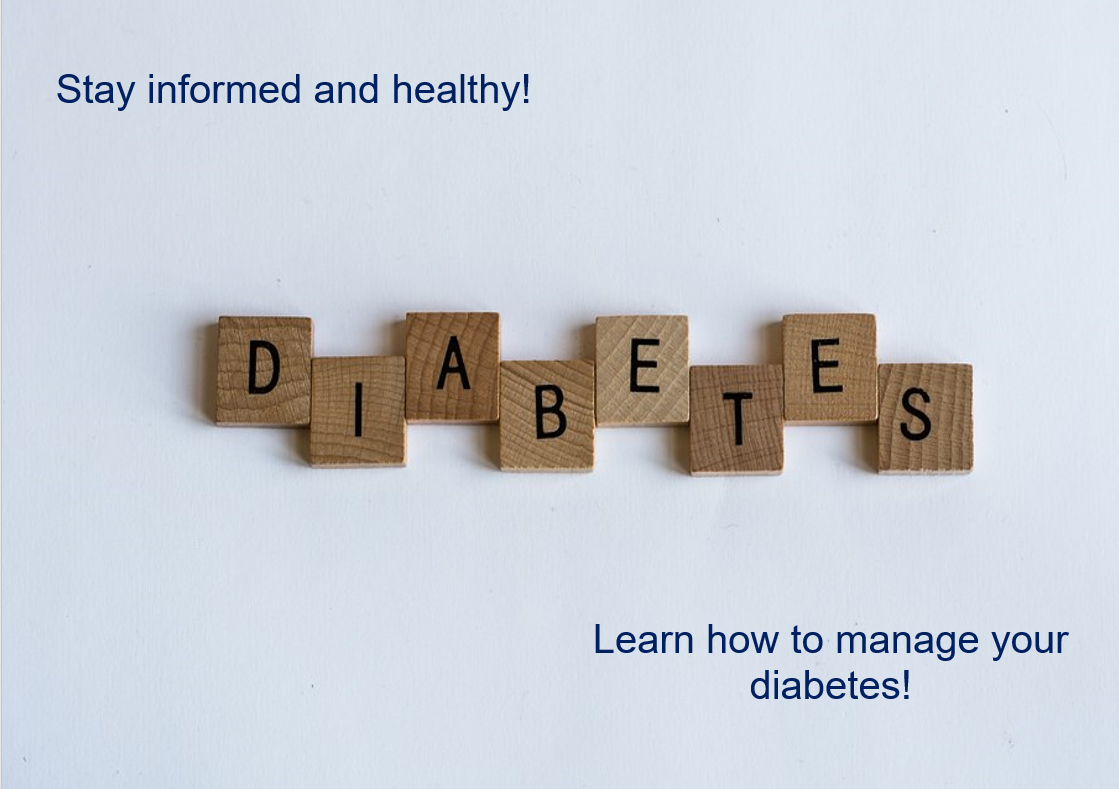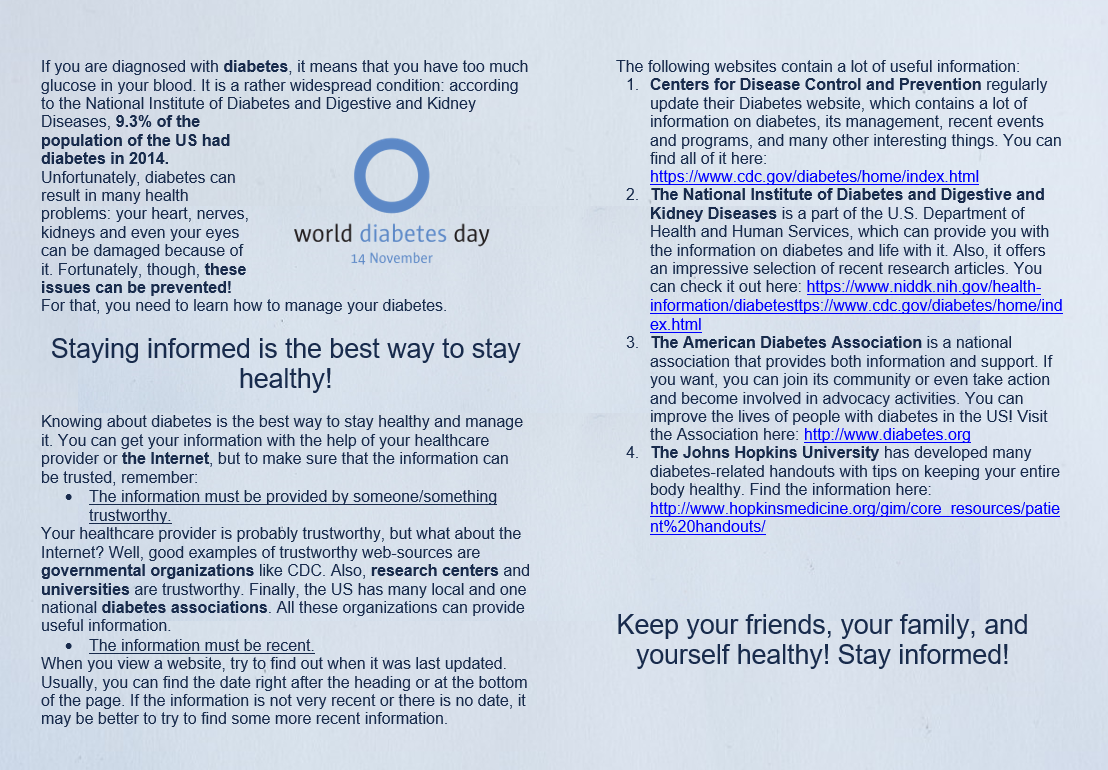The present work contains a handout for patient education on diabetes management, which is meant for people with diabetes; also, their families and caregivers may be interested in it. The handout is predominantly devoted to helping the audience to educate themselves on the issue. Diabetes is a chronic health condition, which manifests in excessively high blood glucose; eventually, it can lead to multiple health problems, including “heart disease, nerve damage, eye problems, and kidney disease” (The National Institute of Diabetes and Digestive and Kidney Diseases, n.d., para. 1). However, these outcomes can be preventable if appropriately managed, which highlights the significance of informing the patients on the ways in which they can protect their own health (Mastrian & McGonigle, 2015).
Nowadays, the disease affects over 9% of the US population (The National Institute of Diabetes and Digestive and Kidney Diseases, n.d., para. 1), which implies that the intended audience of the handout is rather large and diverse. As a result, the handout chooses to employ plain language, which should make it understandable for the varied audience. The data is broken into chunks with the help of lists; the most important elements are highlighted with the help of different font sizes and styles (U.S. Department of Health and Human Services, n.d.). The handout has two parts: the outer (states the topic) and the inner (contains the information) part. The pictures have been found with the help of Google Search; they are labeled for reuse with modification.
The Americans tend to receive health education from the Internet (Baum & Dowling, 2011; Mastrian & McGonigle, 2015). To help them in choosing credible resources, the following websites were offered to the readers of the handout. The Centers for Disease Control and Prevention (n.d.) contain some regularly updated information on diabetes, including diabetes management, statistics, and the programs carried out by the Centers. The National Institute of Diabetes and Digestive and Kidney Diseases (n.d.) offers a similar set of information in plain language, but it also includes many research articles on the topic, which can be of interest for a part of the audience.
The Johns Hopkins University, the Johns Hopkins Hospital, and Johns Hopkins Health System (n.d.) offer handouts devoted to particular aspects of health that are useful for the self-management of diabetes. Finally, the American Diabetes Association (2017) contains the information on diabetes management and offers support as well as the ability to join its community. Also, the Association maintains advocacy activities that are aimed at the improvement of the lives of people with diabetes, which can be of interest for some of the intended audience, including family members. All these sources are credible because they are continually updated by either governmental or research organizations; also, they have slightly different features, which is why this collection of websites can be of use for the varied audience with their diverse needs and interests.


References
American Diabetes Association. (2017). American Diabetes Association. Web.
Baum, N.H., & Dowling, R. A. (2011). Health literacy: How do your patients rate? Urology Times, 39(9), 32. Web.
Centers for Disease Control and Prevention. (n.d.). Diabetes. Web.
Mastrian, K., & McGonigle, D. (2015). Supporting consumer information and education needs. In D. McGonigle & K.G. Mastrian (Eds.), Nursing informatics and the foundation of knowledge (pp. 287-300). Burlington, MA: Jones and Bartlett Learning.
The Johns Hopkins University, the Johns Hopkins Hospital, & Johns Hopkins Health System. (n.d.). Diabetes self-management patient education materials. Web.
The National Institute of Diabetes and Digestive and Kidney Diseases. (n.d.). Diabetes. Web.
U.S. Department of Health and Human Services. (n.d.). Quick guide to health literacy. Web.